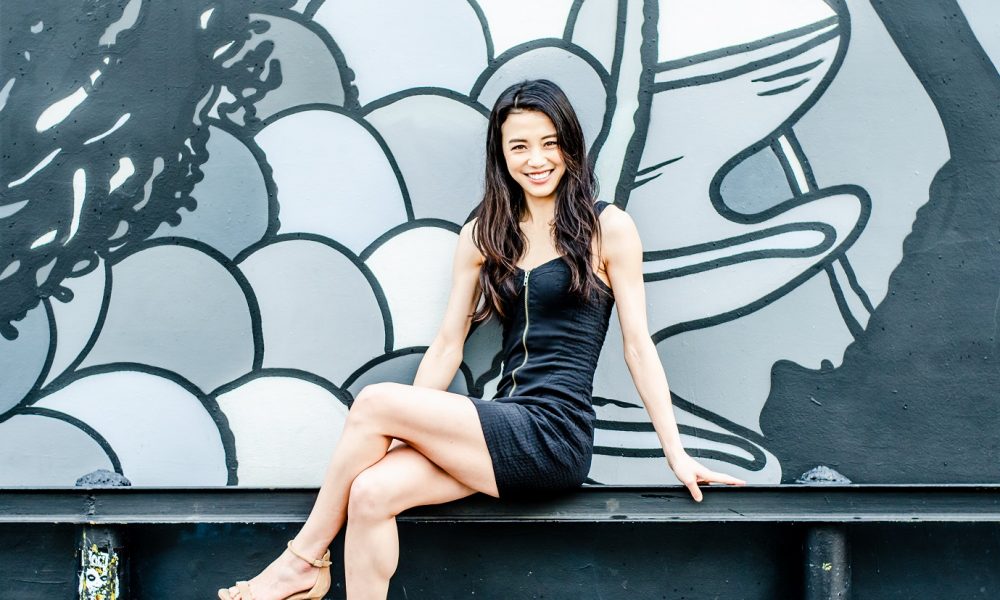

Today we’d like to introduce you to Hana Wu.
Hana, please kick things off for us by telling us about yourself and your journey so far.
For most of my life, I considered myself more an academic than an artist, and it’s taken a long, winding, and very scenic road to get to where I am today. I am the daughter of Taiwanese immigrants who landed in San Jose, California, where my father was offered an engineering position. The goal my parents had for me was to get into a top university and find success and therefore happiness in a stable, distinguished career. Yes, all of that, one goal. As far as the arts went, I studied piano and flute through high school but was discouraged from pursuing the dramatic arts. I ended up getting into UC Berkeley, where I majored in sociology, and then went on to obtain two masters degrees, one in theology and the other in clinical psychology.
I suppose the one through-line in all of my studies was my interest in humanity– what it means to be human and a community, how we relate to one another, how we heal, the best and the worst of us. I worked many jobs in the humanities and social services sector, case managing in organizations that served individuals with developmental and mental disabilities, serving in faith organizations, doing crisis and advocacy work at rape crisis centers and domestic violence shelters, listening to and holding the stories of others as a therapist.
Several years in, I quit abruptly when I found myself in the midst of my own major depressive episode. I had struggled for years with milder forms of anxiety and depression, but crying every day, near panic attacks, and vivid suicidal ideation (I’ve never disclosed this last one publicly) forced me to stop and re-evaluate what I was doing with my life, and how I was doing it.
During my break, I asked myself what I should do to heal myself. If I could do anything in that moment, what would I do?
I took an acting class.
And when I did, I thought to myself, I want to do this every day for the rest of my life. I’ve been pursuing it ever since.
Can you give our readers some background on your art?
I like to say that when I was a therapist, I had the extraordinary honor of holding other people’s stories. With acting, I get to help tell the stories. True to form, I am always most drawn to the stories that illuminate humanity. That tell stories that have rarely been told or heard, that feature aspect of humanity and history that people tend to want to look away from, because sometimes, what we avoid is what we most need to confront, whether that is on an individual/personal level or a societal level.
In addition to getting to tell stories about humanity, acting frees me to explore more of what makes me human. All the things that I’ve repressed or wanted to hide in myself, acting coaxes me to tap into more and more. All the things that make me insecure, self-conscious, rigid, and fearful, acting forces me to push through in order to get the job or get the job done. Before, where I wouldn’t attempt an endeavor unless I was guaranteed success, I now regularly go to auditions where the odds are not in my favor. Where I used to be reluctant to try something new, I now constantly learn what new thing I can do by actually doing it.
How do you think about success, as an artist, and what quality do you feel is most helpful?
Over the course of my life, the notion of success has changed so many times. At this moment, having been inspired by Sandra Oh’s recent interview in backstage.com, the artist in me simply wants to get to a place in my technique where I have such free, open, vulnerable, and controlled grasp of my instrument that I could be as generous as I want to be with all my acting partners and directors. But then the practical, realist side of me says that success is earning a consistent living while doing work that I find meaningful or educational or just plain fun. But I think at the end of my life, if I can say that I have loved well, held onto myself and my values, given all the things I wanted to do my best try, and given my all to the things that were entrusted to me, maybe I would be satisfied.
But, probably not. Because are artists ever satisfied?
What’s the best way for someone to check out your work and provide support?
Many of the films I’ve worked on are either in post-production or the festival circuit, so not available for viewing at the moment. But two web series I’ve been in, both of which had screenings recently at the LA Asian Pacific Film Festival, are currently available to view online.
“The Kids Table,” about a Chinese American group of family friends who grew up celebrating all holidays and special events together, can be viewed at https://thekidstableseries.com.
And “Pineapple,” a coming-of-age series about cultural identity in Kong Kong can be found at facebook.com/pineappleseries.hk.
Ways to support artists in general are to follow them on social media, watch their work, engage with their work, share their work, buy their work, donate to fund their work, particularly independent filmmakers and especially if their work resonates with you.
Contact Info:
- Website: imdb.me/hanawu
- Instagram: @heyhanawu
- Twitter: @heyhanawu






Image Credit:
Angelo Perrino, Red Image Productions, Songnia Xiao, Pineapple still, Five Cent Life still
Getting in touch: VoyageLA is built on recommendations from the community; it’s how we uncover hidden gems, so if you know someone who deserves recognition please let us know here.



















